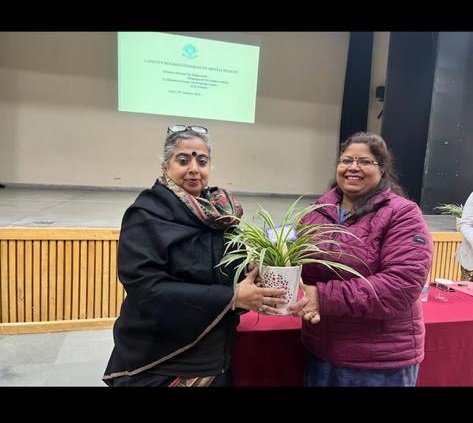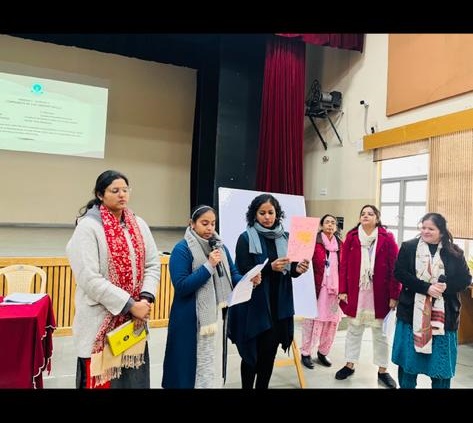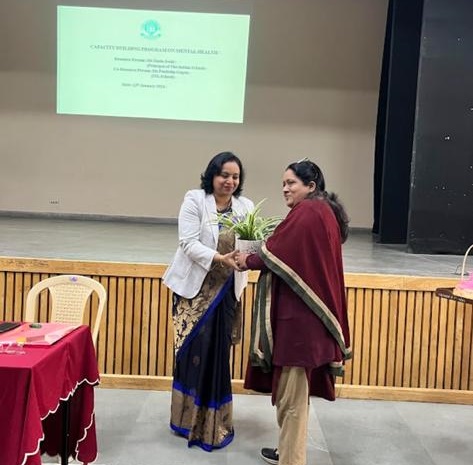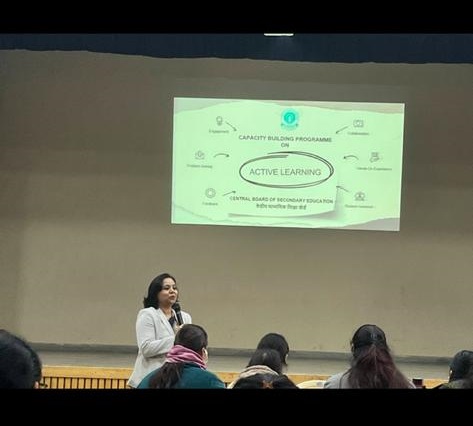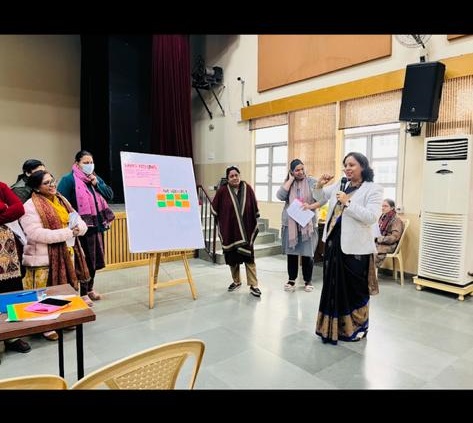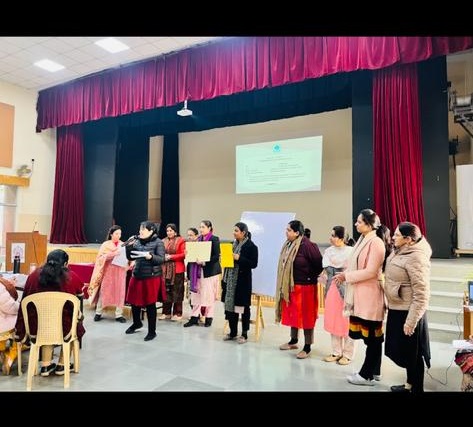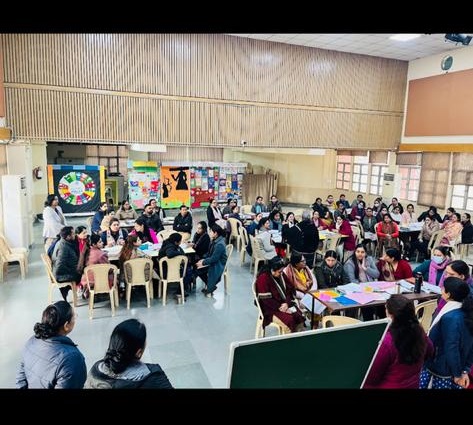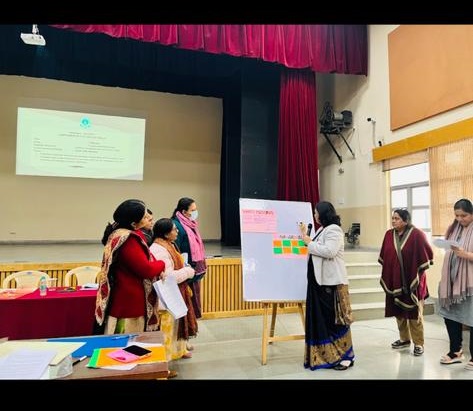CBSE teacher workshop on Active Learning
The Indian School hosted a Capacity Building Programme,
‘Active Learning’ on 13 January 2024, for teachers of the first and second shifts. The session was a comprehensive and interactive experience, focusing on empowering teachers with effective strategies and methods to promote active learning in the classroom. The workshop was organised by the Center of Excellence (CoE), CBSE, showcasing a collaborative effort to enhance teaching practices.
Ms Tania Joshi, Principal, The Indian School, and Ms. Pratishtha Gupta, Science HOD at ITL Public School, served as resource persons, indicating a wealth of experience and expertise in education.
The workshop emphasised active learning as an instructional approach, encouraging engagement through discussions, problem-solving, case studies, role plays, and other interactive methods.
The shift from traditional, passive learning models was highlighted, acknowledging the need for students to develop skills to prepare them for today’s world. The resource persons guided teachers through various methods and strategies to ensure active learning in classrooms. The importance of techniques fostering independent and critical thinking, as well as problem-solving skills, was underscored.
A list of 30 strategies, including Case Studies and Simulations, Concept Maps, Fishbowl, Gallery Walk, Think-Pair-Share, Class Discussion, Brainstorming, Role Play, Forum Theatre, and Socratic Seminars, provided teachers with a diverse toolkit to choose from.
Active participation of the teachers was ensured during the course of the workshop. Teachers were divided into groups and asked to make a presentation on two selected strategies. This hands’-on approach facilitated a deeper understanding and application of the concepts. The presentations were appreciated by the resource persons, indicating the effectiveness of the teachers’ understanding and application of the strategies.
The teachers were familiarised with the Active Learning Activity Plan (ALAP), which provided a structured guide for teachers to implement active learning in their classrooms, emphasising learning outcomes, strategy selection, setting context, and student engagement.
Feedback was given to each group by Ms Tania Joshi and Ms Pratishtha Gupta, fostering a culture of continuous improvement and refinement of teaching techniques. Teachers were encouraged to incorporate the provided feedback to enhance the application of active learning strategies in their classrooms.
The workshop was very interactive, successfully achieving its goal of engaging teachers in active learning methodologies, empowering them with a diverse set of strategies, and fostering a collaborative and reflective learning environment.




